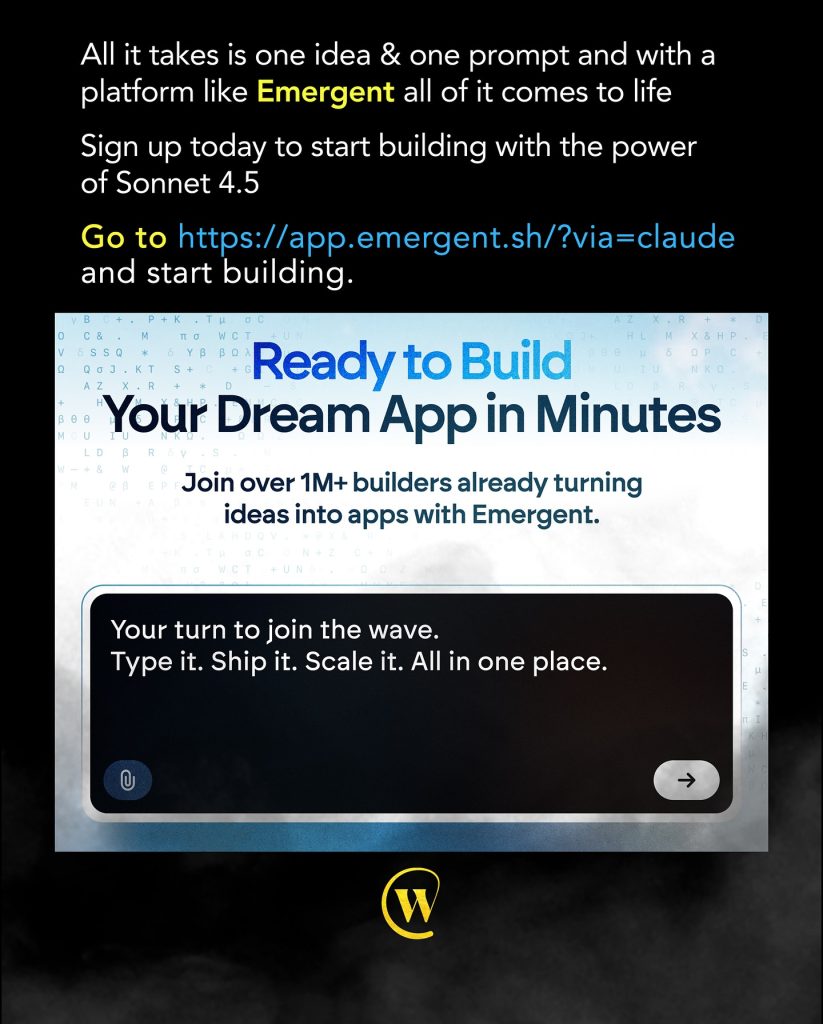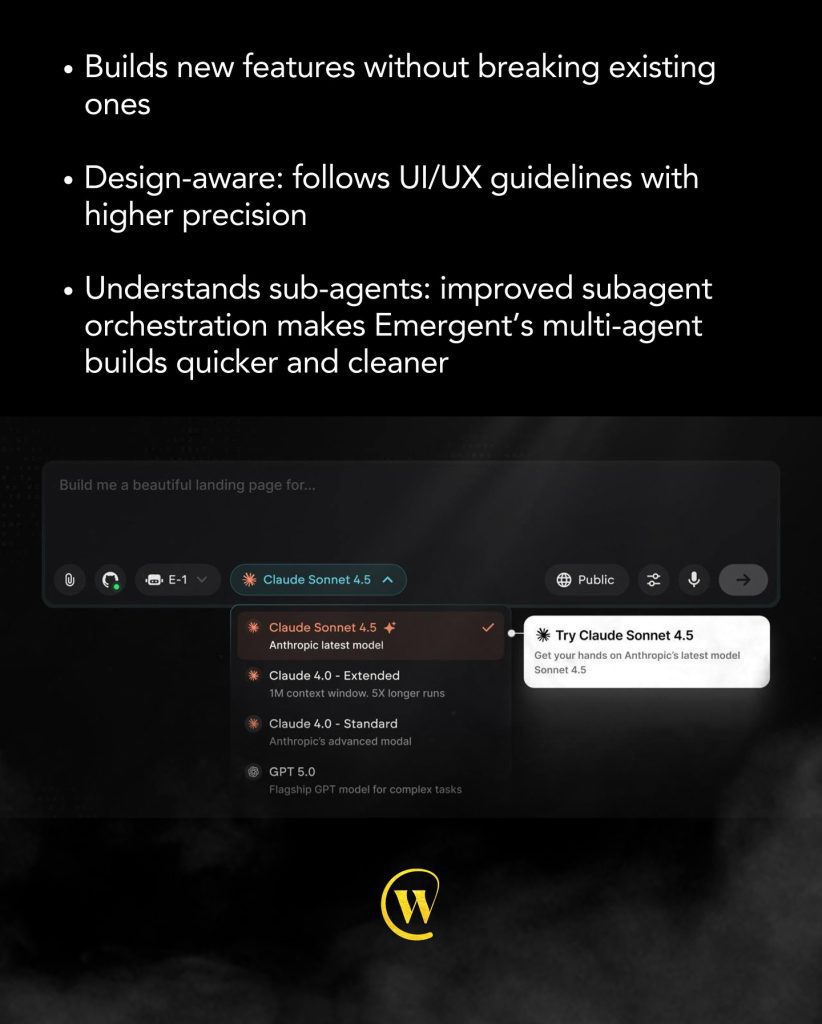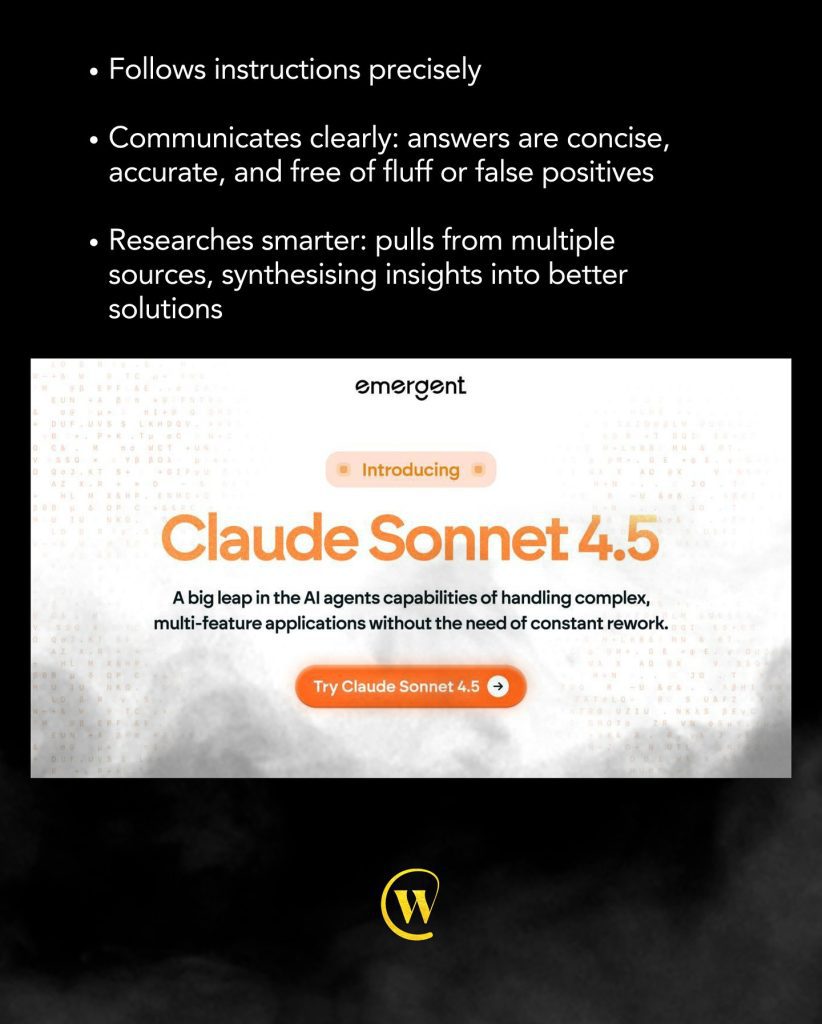How Emergent and Claude Sonnet 4.5 Are Letting Anyone Build Apps From a Single Idea
There’s something magical about watching an idea turn into reality. For years, building an app was something reserved for seasoned developers, long hours of coding, and complex teams that handled design, testing, and deployment. But with the launch of Claude Sonnet 4.5 on Emergent, that world has shifted. Suddenly, the dream of turning a single sentence into a fully functional app isn’t just a wild promise—it’s happening, and it’s happening at scale.
When I first read about Emergent integrating Claude Sonnet 4.5, I thought it sounded too good to be true. An AI model capable of taking your instructions, coding from scratch, fixing its own errors, and even deploying the final build? It almost felt like a fantasy. Yet, here we are, with over one million people already using this platform to create more than 1.5 million apps since launch. That number alone tells you this is not some gimmick. People are typing their dreams into reality, and Emergent is the stage where it unfolds.
Following Instructions With Precision
One of the things that makes Claude Sonnet 4.5 special is its ability to follow directions almost perfectly. When people think of AI, they often imagine vague, generic responses, but this model is sharp and meticulous. If you want an app that tracks your water intake and integrates with your smart fridge, it can do that. If you need something for managing freelance invoices with customizable templates, it understands the specifics.
It communicates clearly, trimming away the fluff and focusing on what matters most. In practice, that means fewer false starts, fewer wasted hours, and fewer frustrations. It pulls information from multiple sources, researches smartly, and weaves insights together into solutions that actually work. For builders—whether you’re a startup founder or just a student experimenting—this kind of precision is game-changing.
Building Without Breaking

Another thing I love about Claude Sonnet 4.5 on Emergent is how it balances innovation with stability. Too often, when new features are added to a system, something else breaks in the process. But this model builds new layers without knocking down the old ones. It respects the existing foundation and makes sure improvements feel seamless.
It also has an impressive awareness of design. Following UI and UX guidelines with precision, it makes apps not just functional, but also user-friendly and polished. If you’ve ever downloaded a tool that works but looks clunky, you know how big this difference is. Emergent’s orchestration of sub-agents makes things even smoother. It’s like having an entire team of mini-specialists working under one main director, ensuring the end product is clean, fast, and reliable.
The Simplicity of a Single Prompt

What makes this whole experience surreal is the simplicity of it. All it takes is one idea and one prompt. You type it, and Emergent takes care of the rest. The AI drafts the code, debugs the errors, runs tests, and gets your app ready for deployment. You don’t need to know Python, Swift, or JavaScript. You don’t need to worry about setting up hosting or managing databases. It’s like giving a painter a vision, and within minutes, they hand you a finished canvas.
That’s why the platform has been gaining momentum so quickly. Over a million builders are already part of this wave, and it feels like we’re just at the beginning. The barrier to entry is gone. Suddenly, the ability to create isn’t about technical skill—it’s about imagination.
The Emotional Shift

There’s also something deeper happening here. For years, people with amazing ideas felt shut out because they didn’t have the technical training to bring their vision to life. They had to rely on expensive developers, long waiting times, or give up entirely. Emergent changes that narrative. It hands the power back to the dreamers.
When you can turn an idea into reality within hours, it shifts the way you think. You start to believe more in your creativity. You stop second-guessing whether your vision is “too complicated.” Because now, with a single prompt, you can test it. You can build it. You can share it.
Scaling Beyond the First Build
What excites me most is not just the ability to build once, but the ability to scale. Emergent and Claude Sonnet 4.5 don’t just stop at delivering a prototype. They let you scale, adapt, and refine your project as it grows. Whether you want to add features, improve the interface, or integrate with other platforms, the AI keeps evolving alongside your idea.
This isn’t about building one-off projects. It’s about creating living, breathing applications that grow with you. For entrepreneurs, that’s a massive leap forward. For students and creators, it’s an open door to experimentation without fear of failure.
A Future Shaped by Ideas
The message is clear: all it takes is one idea and one prompt. Emergent, powered by Claude Sonnet 4.5, is transforming app development from a gatekept skill into something universally accessible. Over a million people are already building apps, but what excites me is thinking about the millions more who will soon join.
Maybe you’ve been sitting on an idea for a language-learning app that feels more like a game. Or maybe you’ve been sketching plans for a platform that connects local communities through shared resources. Whatever your dream is, the tools to make it real are now in your hands.
It’s your turn to type it, ship it, and scale it. The future belongs to those who dare to imagine, and thanks to this technology, the gap between imagination and creation has never been smaller.v

